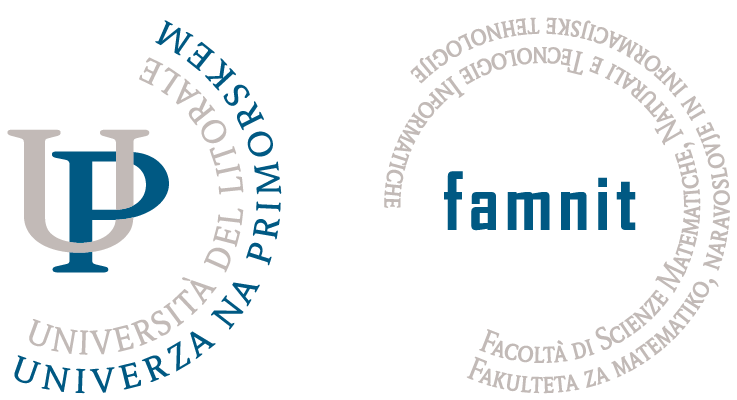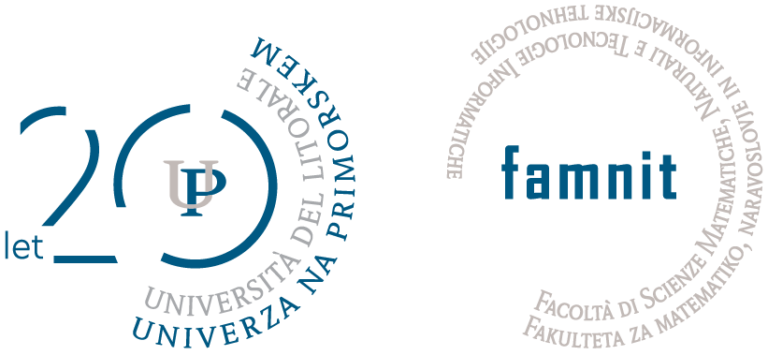A study conducted by UP FAMNIT researchers and colleagues reveals that working in virtual reality (VR) has a significantly more negative impact on people’s productivity compared to working in a physical office environment.
Maheshya Weerasinghe, Klen Čopič Pucihar and Matjaž Kljun from the Department of Information Sciences and Technologies at UP FAMNIT alongside with a research group including Verena Biener, Snehanjali Kalamkar, Negar Nouri, Eyal Ofek, Michel Pahud, John J. Dudley, Jinghui Hu, Per Ola Kristensson, Stephan Streuber and Jens Grubert, revealed important scientific findings that help lay the groundwork for further research by clearly highlighting current shortcomings and identifying opportunities to improve the VR work experience.
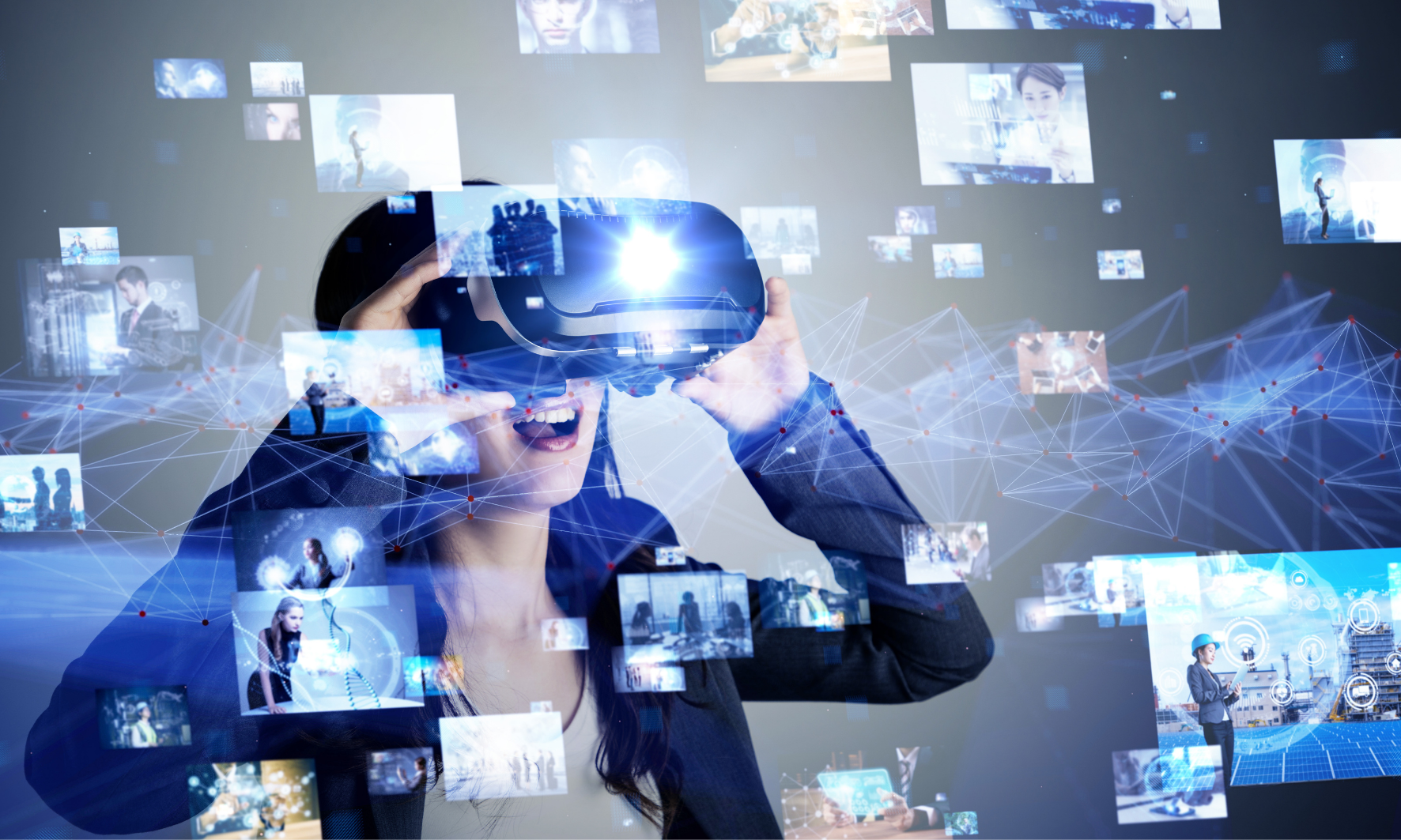
As part of the IEEE ISMAR 2022 Conference (Institute of Electrical and Electronics Engineers Conference for Augmented Reality (AR), Mixed Reality (MR) and Virtual Reality (VR) 2022), the article entitled »Quantifying the Effects of Working in VR for One Week« will be published in the IEEE TVCG journal (IEEE Transactions on Visualization and Computer Graphics), which includes contributions in the field of computer graphics, information and scientific visualization, visual analytics, virtual and augmented reality, with emphasis on theory and algorithms.
In addition to publication in the prestigious IEEE TVCG, our researchers’ article also attracted the attention of New Scientist, the world’s most popular weekly science and technology publication, which covers international news from a scientific perspective and raises extensive questions about life, space and what it means, to be human.
»People working full-time in a virtual-reality environment have lower productivity and well-being, and increased anxiety, according to a new study. The research shows that, despite companies such as Microsoft and Facebook owner Meta investing heavily in VR and the immersive virtual world of the metaverse, the technology isn’t yet ready for widespread use in the workplace, while some people may never be able to use it effectively,« briefed Matthew Sparkes for New Scientist.
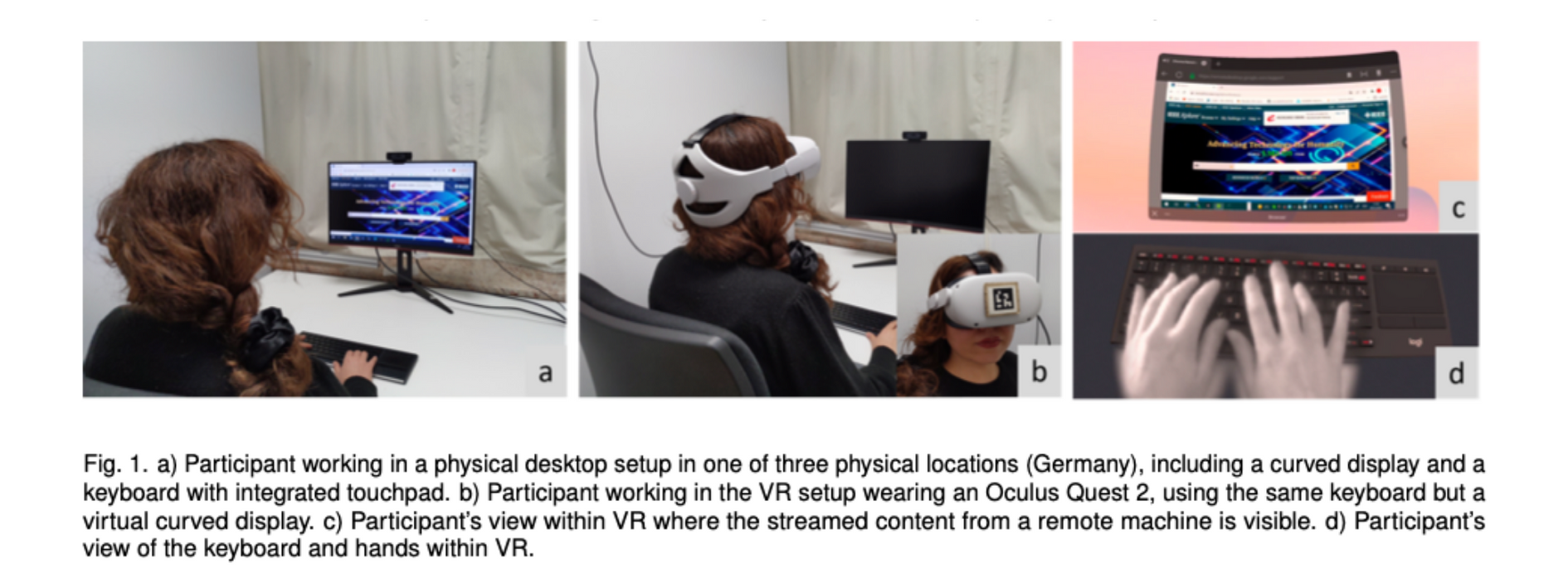
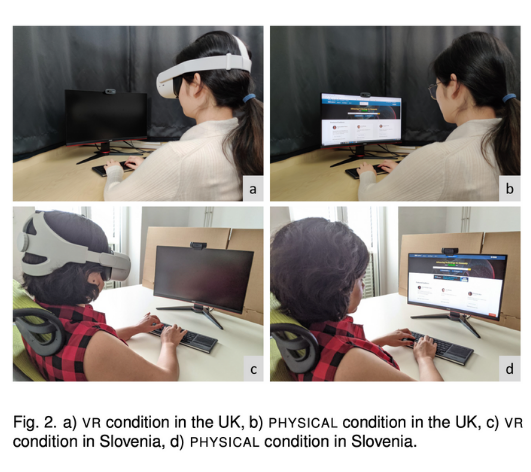
Source: https://arxiv.org/pdf/2206.03189.pdf
Given the limitations of current technology and the fact that VR provides a virtual approximation of the real environment, the researchers did not expect that working in the VR environment would exceed the efficiency of working in the physical environment, which is also confirmed by the results. Already on the first day, two participants stopped participating in the study due to migraine, nausea and anxiety. On the other hand, the results of the study showed, that participants are gradually overcoming negative first impressions and initial discomfort, which can serve as a baseline for future optimization of VR systems.
The full article is available here.
The IEEE ISMAR conference attracts the world’s leading researchers from both academia and industry, and this year’s 21st in a row will be held for the first time in Southeast Asia, in Singapore, from 17 to 21 October, 2022, in a hybrid version.
In addition to the article »Quantifying the Effects of Working in VR for One Week«, IEEE TVCG will publish two more articles by UP FAMNIT researchers: »VocabulARy: Learning Vocabulary in AR Supported by Keyword Visualisations« (authors: Maheshya Werasinghe, Klen Čopič Pucihar, Verena Biener, Aaron Quigley, Alice Tonilo, Angela Miguel, Jens Grubert, Matjaž Kljun) and »Arigato: Effects of Adaptive Guidance on Engagement and Performance in Augmented Reality Learning Environments« (authors: Maheshya Werasinghe, Klen Čopič Puciigley, Aron , Alice Tonilo, Angela Miguel, Matjaž Kljun).
Congratulations to our researchers and other authors!
